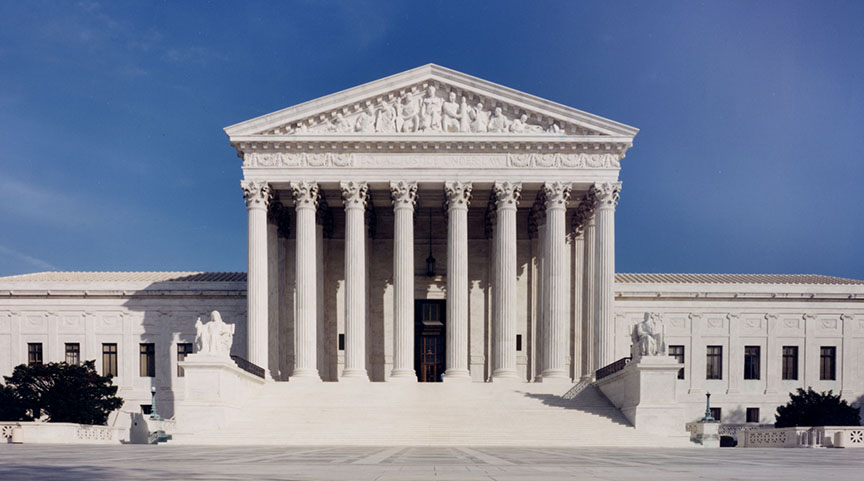
Michelle Berger is a student at Harvard Law School.
In today’s News and Commentary: The Supreme Court heard oral arguments on overturning Chevron and a recent NLRB complaint alleges widespread refusal to bargain in good faith by Starbucks.
The Justices heard oral arguments yesterday in Loper Bright Enteprises v. Raimondo. In Loper, the Court is considering whether to overturn Chevron‘s holding that courts should defer to reasonable agency interpretations of ambiguous statutes. Court observers, such as those at SCOTUSblog and the New York Times, tentatively predict that the Court will vote to overturn Chevron, though Chief Justice Roberts’ and Justice Barrett’s votes are not certain. The conservative Justices’ rationales for disliking Chevron vary (Justice Gorsuch, for example, seemed to distance himself from Justice Kavanaugh’s pro-business line of questioning by shifting focus to Chevron‘s impact on the civil liberties of individual litigants). The liberal Justices appeared united in the belief that Chevron deference is a bedrock judicial precedent that keeps decision-making in the hands of politically accountable experts, and out of the hands of judges. The Court consolidated Loper with another case, Relentless Inc. v. Department of Commerce, possibly because Justice Jackson recused herself from Loper. The consolidation gives the Court the added legitimacy of a decision by all nine Justices, should the court vote to overturn precedent. Jason discussed the potential labor law implications of a post-Chevron doctrine here.
The NLRB regional director in Florida filed a massive complaint last week against Starbucks. The complaint alleges that Starbucks has violated the NLRA by failing to bargain in good faith at the nearly 400 unionized Starbucks locations (Starbucks operates just shy of 9,000 stores in the United States, NPR reported in 2021). Starbucks baristas in Buffalo, NY, became the first in the company to unionize more than two years ago, in December of 2021. The organizing effort in Starbucks has been hailed as part of an energetic labor resurgence. Yet none of Starbucks’ unionized stores have a contract. On average, it takes 458 days for unions and employers to ratify a first contract — a number that has been rising for years as employers, perhaps embolden by the NLRB’s weak remedial powers, deploy union avoidance tactics even after their employees have exercised their right to chose a union. This is a stark reminder of how broken labor law is.






Daily News & Commentary
Start your day with our roundup of the latest labor developments. See all
July 2
Block, Nanda, and Nayak argue that the NLRA is under attack, harming democracy; the EEOC files a motion to dismiss a lawsuit brought by former EEOC Commissioner Jocelyn Samuels; and SEIU Local 1000 strikes an agreement with the State of California to delay the state's return-to-office executive order for state workers.
July 1
In today’s news and commentary, the Department of Labor proposes to roll back minimum wage and overtime protections for home care workers, a federal judge dismissed a lawsuit by public defenders over a union’s Gaza statements, and Philadelphia’s largest municipal union is on strike for first time in nearly 40 years. On Monday, the U.S. […]
June 30
Antidiscrimination scholars question McDonnell Douglas, George Washington University Hospital bargained in bad faith, and NY regulators defend LPA dispensary law.
June 29
In today’s news and commentary, Trump v. CASA restricts nationwide injunctions, a preliminary injunction continues to stop DOL from shutting down Job Corps, and the minimum wage is set to rise in multiple cities and states. On Friday, the Supreme Court held in Trump v. CASA that universal injunctions “likely exceed the equitable authority that […]
June 27
Labor's role in Zohran Mamdani's victory; DHS funding amendment aims to expand guest worker programs; COSELL submission deadline rapidly approaching
June 26
A district judge issues a preliminary injunction blocking agencies from implementing Trump’s executive order eliminating collective bargaining for federal workers; workers organize for the reinstatement of two doctors who were put on administrative leave after union activity; and Lamont vetoes unemployment benefits for striking workers.